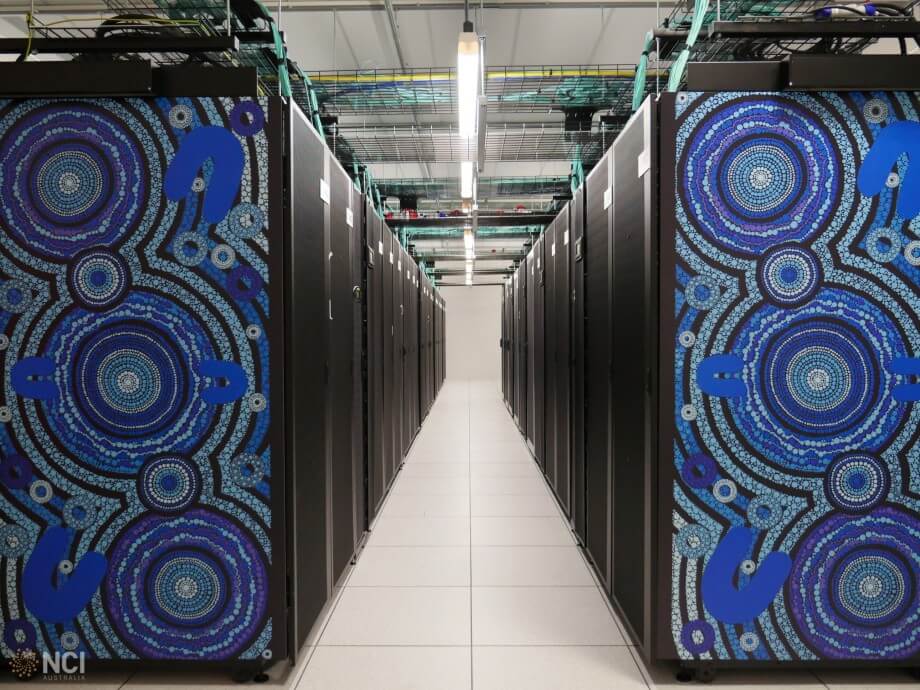
Australia’s newest and fastest supercomputer Gadi has reached number 25 in the latest global Top500 supercomputer rankings.
The TOP500 list was released on Monday, 22 June at the ISC High Performance Digital Conference. The list, a ranking of the most powerful supercomputers in the world, is published twice a year at major supercomputing conferences.
Gadi, housed at the National Computational Infrastructure (NCI Australia), itself based at the Australian National University (ANU), is a game-changer for the country’s leading scientific institutions.
NCI’s previous supercomputer, Raijin, had fallen to number 239 on the Top500 list before its retirement in January this year when Gadi reached its full production capacity.
Last November, Gadi was ranked at number 47 in the Top500 list, but the complete system was not operational for benchmarking at that time.
Gadi was funded by the Australian Government under the National Collaborative Research Infrastructure Strategy (NCRIS). This $70 million upgrade investment brought Australia back into having one of the top 100 supercomputers in the world.
Gadi, meaning ‘to search for’ in the language of the Ngunnawal people, will strengthen Australia’s capacity to perform world-leading scientific research, and will directly contribute to the safety and wellbeing of the nation.
ANU Vice-Chancellor Professor Brian Schmidt said the new supercomputer will help Australian researchers tackle and solve some the most profound and pressing issues of the coming decade.
"Gadi will give researchers the tools to unlock the mysteries of the universe, predict and manage natural disasters, advance cancer research and design new materials for future technologies”, said Professor Schmidt.
Professor Sean Smith, Director of NCI, sees Gadi as a significant and important evolution of high-performance computing for Australia.
“The computational performance available on Gadi is unprecedented in Australia, enabling rapid response to national emergencies such as COVID-19 and bushfires that we could not have approached before,” said Professor Smith.
“We have over 5,000 users that rely on NCI’s unparalleled high-performance compute and data services to produce world-leading scientific research. With Gadi now fully operational, these users will be able to perform their work faster, and with greater precision. Gadi is, quite simply, a critical foundational infrastructure for Australia and Australian research.”
RCC partner QCIF has a share of time on Gadi for researchers at its member universities (including the University of Queensland), which can be applied for at any time.
UQ researchers who wish to apply for QCIF’s share should contact RCC eResearch Analyst Dr Marlies Hankel in the first instance. She will instruct you in how to fill in the required forms and ascertain whether your workload is suited to Gadi. Also contact Marlies if you would like to know more about Gadi: m.hankel@uq.edu.au.
Researchers may also apply for time on Gadi via NCI’s annual National Computational Merit Allocation Scheme (NCMAS). If you’re considering applying for NCMAS this year to use Gadi in 2021, or if your application last year did not go as well as expected, the sooner you contact Marlies, the better.
This article is partly based on a NCI media release, published 23 June 2020. Read the full media release.



